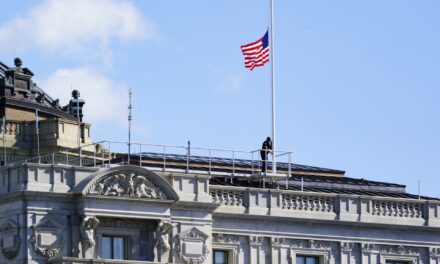This article is from SRN News
Israel and Lebanon Near Cease-Fire Agreement To End Yearlong Conflict
Officials from both nations anticipate a US-mediated truce could be finalized within days
By Steven Ganot/The Media Line
Israel and Lebanon are on the verge of finalizing a US-mediated cease-fire that could be announced within days, officials from both nations said on Monday. The proposed agreement aims to conclude over a year of escalating hostilities between Israel and Hezbollah, an Iran-backed armed group in Lebanon, which have heightened fears of a broader Middle East conflict.
The Israeli security cabinet is set to convene on Tuesday to discuss and potentially approve the cease-fire, according to Israeli officials. “We are moving in the direction toward a deal, but there are still some issues to address,” said Israeli government spokesperson David Mencer. Michael Herzog, Israel’s ambassador to the United States, told Israeli Army Radio, “We are close to a deal. It can happen within days.”
In Beirut, Lebanese Deputy Parliament Speaker Elias Bou Saab expressed optimism about the negotiations. “There are no serious obstacles left to beginning implementation of a US-proposed cease-fire with Israel,” he told Reuters. Bou Saab explained that the proposal includes a 60-day timeline for Israeli forces to withdraw from southern Lebanon, providing time for the Lebanese army to deploy to the border region, historically a Hezbollah stronghold.
A significant hurdle regarding who would monitor compliance with the cease-fire was resolved by agreeing to establish a five-country committee, chaired by the United States and including France.
Intensifying Conflict Amid Diplomatic Efforts
Despite diplomatic progress, hostilities have intensified in recent days. Over the weekend, Israel conducted powerful airstrikes in Lebanon, one of which reportedly killed at least 29 people in central Beirut. In response, Hezbollah launched one of its largest rocket barrages on Sunday, firing 250 missiles into Israeli territory.
Israeli airstrikes continued on Monday, targeting areas in the Hezbollah-controlled southern suburbs of Beirut. The attacks sent plumes of smoke and debris over the Lebanese capital, underscoring the urgent need for a cease-fire.
The conflict escalated after Hezbollah began attacking Israel on October 8, 2023, following a deadly raid by the Palestinian group Hamas on southern Israel the previous day. Initially sporadic exchanges have since developed into full-scale warfare, with Israel launching extensive airstrikes and ground incursions into southern Lebanon.
Since the start of the war, Israeli attacks have killed more than 3,500 people in Lebanon, according to Lebanon’s Health Ministry. Israeli officials report that Hezbollah attacks have killed 47 Israeli civilians, and the Israeli military states that 46 soldiers have died in the fighting. The death toll is lower in Israel partly due to the country’s air-defense systems intercepting most rockets before they reach populated areas.
Cease-Fire Terms and Conditions
The proposed cease-fire aims to restore the terms of United Nations Security Council Resolution 1701, which ended the 2006 war between Israel and Hezbollah. The resolution requires Hezbollah to withdraw its fighters approximately 30 kilometers (19 miles) north of the Israeli border, behind the Litani River. It also mandates that the regular Lebanese army take control of the frontier region to prevent Hezbollah’s return.
Israeli Foreign Minister Gideon Sa’ar emphasized the importance of enforcement in any agreement. “The test for any agreement will be in the enforcement of two main points. The first is preventing Hezbollah from moving southward beyond the Litani, and the second, preventing Hezbollah from rebuilding its force and rearming in all of Lebanon,” Sa’ar said in remarks to the Israeli parliament.
However, some issues remain unresolved. A key sticking point is Israel’s demand to reserve the right to take military action if Hezbollah violates its obligations under the emerging deal. Lebanon has not indicated whether it would agree to this condition. Additionally, both countries have accused each other of violating the 2006 resolution, complicating trust between the parties.
Pressure From the United States
American officials have been urging Israel to finalize the deal before Thanksgiving, celebrated on Thursday in the United States. Last week, the Biden administration dispatched top envoy Amos Hochstein to Israel and Lebanon to push for an agreement. Hochstein held discussions in Beirut and Jerusalem before returning to Washington, declaring significant progress.
Reports suggest that President Joe Biden and French President Emmanuel Macron are expected to announce the 60-day cease-fire agreement. However, concerns have arisen over France’s commitment to enforce International Criminal Court warrants for the arrest of Prime Minister Benjamin Netanyahu and former Defense Minister Yoav Gallant, causing friction with Israeli officials.
Mixed Reactions Within Israel
Not all Israeli officials support the impending cease-fire. National Security Minister Itamar Ben-Gvir criticized the potential agreement, calling it “a big mistake” and “a historic missed opportunity to eradicate Hezbollah.” Addressing Netanyahu on social media platform X, Ben-Gvir wrote, “It is not too late to stop this agreement! We must continue until absolute victory!”
Local leaders in northern Israel have also voiced strong opposition. Metula Mayor David Azoulay denounced the pending agreement as “a surrender deal” during an interview with Channel 12 news. Kiryat Shmona Mayor Avichai Stern expressed similar sentiments on Facebook: “I don’t understand how we went from total victory to total surrender. Someone here has lost it.”
Knesset Member Benny Gantz, head of the National Unity party and a former member of Netanyahu’s war cabinet, called on the prime minister to disclose the details of the cease-fire. “The northern residents and the soldiers and citizens of Israel have the right to know,” Gantz wrote on X.
Hezbollah’s Stance and International Mediation
Hezbollah leader Sheikh Naim Qassem stated last week that the group had reviewed and provided feedback on the US cease-fire proposal, placing the next move in Israel’s hands. Hezbollah, designated as a terrorist organization by the United States, has endorsed Parliament Speaker Nabih Berri of the Shi’ite Amal movement to negotiate on its behalf.
The involvement of France, at Lebanon’s request, adds another layer of international diplomacy to the efforts. However, France’s position on enforcing International Criminal Court warrants has been a point of contention in the negotiations.
Humanitarian Impact
The conflict has taken a severe toll on civilians on both sides of the border. In Lebanon, more than 1 million people have been displaced from their homes due to Israeli airstrikes and ground operations. In Israel, about 60,000 people have been evacuated from northern communities under threat from Hezbollah rocket attacks.
On Monday, the Israel Defense Forces’ Home Front Command issued new restrictions in several northern areas, anticipating intensified rocket fire from Hezbollah before any cease-fire takes effect. Schools were closed, and large gatherings were prohibited in affected regions. Residents scrambled to shelters as sirens announced incoming projectiles from Lebanon.
Looking Ahead
As the Israeli security cabinet prepares to meet on Tuesday at the Israel Defense Forces’ Kirya headquarters in Tel Aviv, the nation awaits the outcome of the deliberations. The meeting is expected to last several hours, reflecting the complexity and significance of the decision at hand.
Agriculture Minister Avi Dichter expressed cautious optimism about reaching an agreement. “If we say ‘no’ to Hezbollah being south of the Litani, we mean it,” he told journalists.
If Israel and Hezbollah fail to approve the proposed cease-fire by Thursday, officials believe it could still be finalized by the weekend. The international community watches closely as Israel and Lebanon edge closer to a potential agreement that could pave the way for a reduction in hostilities and a return to relative stability in a region long fraught with tension.
Brought to you by www.srnnews.com





























